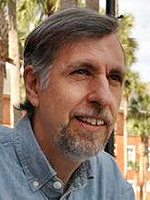Guest Post by Paul Croce
Historians pay attention to change. Students of the past need no reminding about the evolution of societies, the relationship of ideas to their times, and the contingencies of life. But some unhistorical thought can slip into historical study with exclusive focus on the finished products of a thinker’s work without considering the evolutionary steps toward those creations.
Such a focus can be very tempting; after all, those later productions are generally the most thought out and refined; in the same spirit, who would consider submitting a first draft for publication? But in the course of a life, the equivalents to those early drafts are more than just messy versions of later productions; they can harbor clues to a thinker’s drives and goals, often presented in still more raw form than later texts and creations.
I call this “developmental biography,” the method of attention to an intellectual’s creations over time, in development; the method involves placing an idea not only in contextual history, but also in the thinker’s own history. Consider then these reasons to take a closer look at early life when evaluating the figures of intellectual history:
1-Examining an idea in development, especially through the life path of the idea’s creator in development, brings attention to the choices made during stages of thinking, and to the contexts surrounding those choices. This focus can reveal not only the influences on thought, but also the development of commitment. The culminating theory itself remains important, generally with greater depth and nuances, but the path of development shows how the composer cared enough to create it.
2-Awareness of multiple moments in a figure’s intellectual career reveals that each expression of ideas, even the most refined, is but one snapshot among many in a lifetime. This is a good reminder that the later work, no matter how brilliant, is not a fixed or timeless element of thought, but a culmination of earlier work—and of contexts and interests, and of steps and missteps—which shaped the thinker’s orientations leading to that later idea. Developmental biography provides a veritable research program for inquiry: What steps in prior thought would generate guiding interests and curiosities; what choices would lead to particular orientations; what opportunities and problems would provide lessons for motivations and drives toward later creations?
3-Attention to changes in thought and thinker in development brings in factors beyond the intellectual construction of ideas, even as cognition plays an important role alongside emotional and volitional development and values commitments. In the spirit of attention to inclinations in the shaping of ideas, these non-rational factors play a role, not only in the personal development of the thinker, but also in the intellectual evolution of the thought. At earlier times, these factors may not yet be articulated explicitly, but they make particularly strong contributions to the motivations for selection of theoretical paths, to the assumptions that serve as starting points for the construction of theories, and to the establishment of commitment to those ideas.
4-The attention that developmental biography gives to directional choices and to non-rational factors shaping thought shows that the evolution of thought is no mere change from small to big versions of ideas. Earlier ideas, even when setting the stage for later thought or serving as preparation with choices made and directions tried out, surely had a life of their own. Each figure develops, of course, with no knowledge of the future, and therefore with no comprehension of the later impacts of earlier steps; and yet each step would surely contribute in some measure to the shape of later thought.
6-Developmental biography retains a keen awareness that the achievement of a theory once formed, for all its confidence, persuasiveness, and even fame, was never a sure thing, but subject to a host of contingencies of construction; the august mature production could have been otherwise. For good or ill, the more youthful ideas, although they served some purposes in development, were likely to be edited heavily; or even, like scaffolding in construction, they were soon taken down. So this decentering of achievement is not debunking, but it can bring an awareness of the way a theory earned its way toward its later privileged status.
7-Contingency has importance not only for a theory’s developmental past, but also for its present and future; the theory emerged from out of contingency, and even when buttressed by reputation and status, it itself still carries shades of contingency: viewing even the most certain-seeming theory in its developmental context can also support the possibilities for challenge to the theory and change in those people and settings it has influenced. Developmental biography grows out of awareness of change, and its perspective can contribute to the possibilities for change.
Intellectual creations show the impress of a host of factors, including theoretical debates, social contexts, and the personal inclinations of the creator. Along with these and often operating as their coordinator, a theorist’s own development shows the shaping of creations over time, with the contingencies and choices of the theorist’s own evolution. Each stage of development would contribute to the best-known creations of later years. With developmental biography, that mature work retains its importance, as the culmination of a lifetime of experiences.
Paul Croce organized the session “Contingencies of Const ruction” for the S-US
ruction” for the S-US
IH annual meeting and will be presenting a paper in this session on “Developme
ntal Bio
graphy and the Pluralistic Empiricism of William James.” He is professor of History and American Studies at Stetson University, and the author of
Science and Religion in the Era of William James (1995), and Young William James Thinking (forthcoming).

0